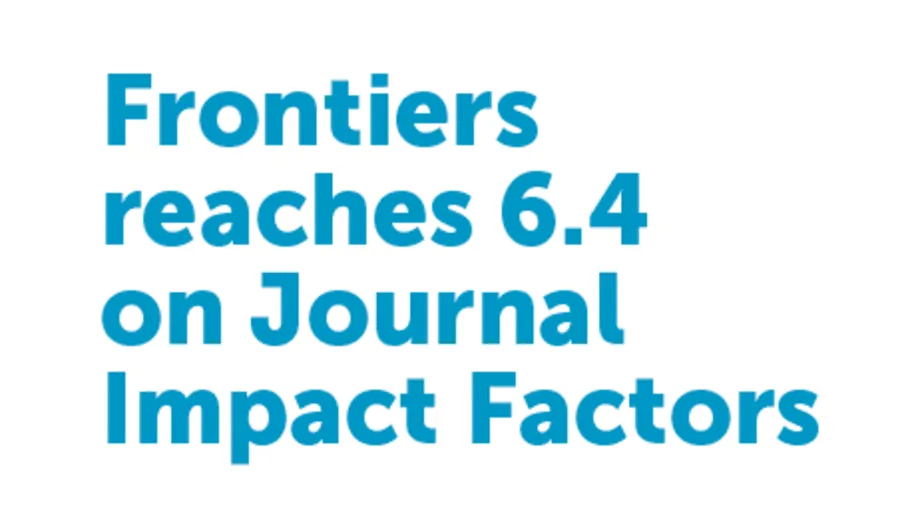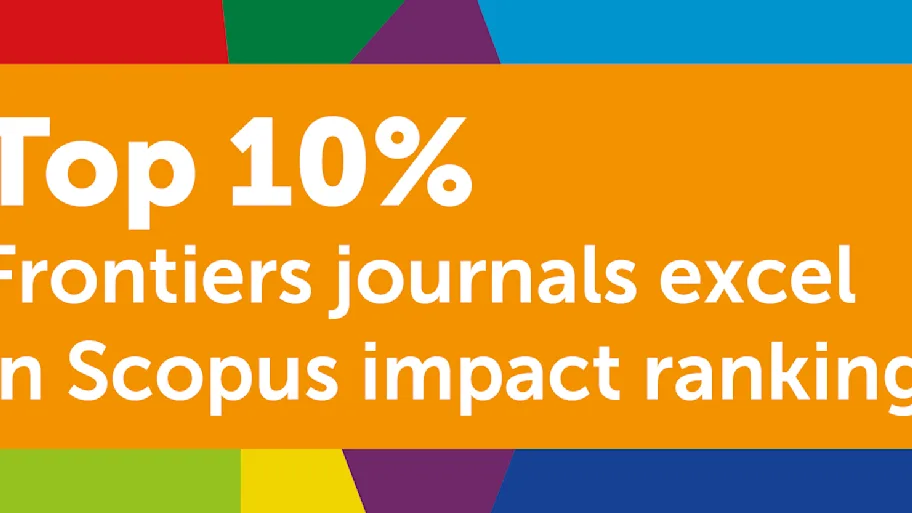
- Science news
- Environment
- Ill-fitting gear puts female firefighters at risk: Five Frontiers articles you won’t want to miss
Ill-fitting gear puts female firefighters at risk: Five Frontiers articles you won’t want to miss
By Deborah Pirchner, Frontiers science writer

Image: CAL FIRE_Official/Flickr (CC BY-NC-ND 2.0)
At Frontiers, we bring some of the world’s best research to a global audience. But with tens of thousands of articles published each year, it’s impossible to cover all of them. Here are just five amazing papers you may have missed.
Ill-fitting gear increases female firefighters’ risk on the job
Over the past years, the number of female firefighters has been rising steadily. As of 2020, women make up 9% of firefighters in the US. Despite this, the gear they are wearing is still made for male bodies. Using 3D body scans of 189 female firefighters, US-based researchers have studied this gear to improve comfort, mobility, and safety for female firefighters. They published their results in Frontiers in Materials.
The scientists found that female firefighters are wearing personal protective clothing (PPC) with significant fit issues. This reduces comfort, restricts mobility and increases safety risks on the job, they wrote. Between 15% and 21% of female firefighters were found to intentionally leave off a part of their PPC, mostly pants and coats, at least ‘sometimes,’ if not ‘nearly always’. The researchers also identified where the highest potential for design and fit improvement lies. Included are interface areas such as sleeves, hoods, and boots.
Article link: https://www.frontiersin.org/articles/10.3389/fmats.2023.1175559/full
Being in a bad mood might stop us from mimicking facial expressions of others
Smiling back when someone smiles at us is natural. Certain health disorders such as depression are known to stifle this reflex. However, also in healthy individuals, negative mood may suffice to disrupt mimicking of facial expressions. To explore this further, researchers in the US have now published a study in Frontiers in Psychology in which they examined the relationship between automatic or effortful mimicking and negative mood in healthy participants.
They found that even mild negative mood is tied to deficiencies in facial mimicry at the automatic and effortful level. High levels of negative mood were mainly associated with deficits in effortful mimicry of happy expressions. The researchers also found some evidence in automatic mimicry of happy faces. Next to this, there were also ties between negative moods and inaccuracies in effortful – but not automatic – mimicry of sad expressions. Inaccurate automatic and effortful mimicry were also connected to lower self-reported social support and greater loneliness.
Article link: https://www.frontiersin.org/articles/10.3389/fpsyg.2023.1056535/full
Is it just an itch, or is it stress?
Studying at university level has been connected to increased physical and psychological well-being issues. Research from around the world has shown that students are experiencing high levels of stress, often resulting in health issues, including dermatological problems. Highly stressed students (HSS) were found to have more skin symptoms, including itching, than lowly stressed students (LSS). Writing in Frontiers in Medicine, German researchers have surveyed students to assess whether itching is also associated with stress in a large sample of German students.
The study revealed that HSS more often reported to be itchy compared to LSS. However, the researchers noted a generally very high prevalence of itching with 81.6% in HSS and 56.5% in LSS, respectively. Next to the connection between stress and itching, the researchers also found that HSS often reported a variety of other skin complaints of which the majority is itchy, such as oily, waxy, or flaky patches on the scalp.
Article link: https://www.frontiersin.org/articles/10.3389/fmed.2023.1104110/full
Radiation exposure delays fetal growth in wild living Japanese monkeys
Since 2008, the population of Japanese monkeys, commonly known as ‘snow monkeys’, in Fukushima City has been managed systematically. After the Fukushima Daiichi nuclear accident in 2011, this population of Japan’s macaques became the first wild-living primates in the world exposed to radiation. To clarify the biological effects of radiation exposure on fetal growth, scientists in Japan have analyzed pregnant monkeys and their fetuses. They published their results in Frontiers in Veterinary Science.
The researchers measured weight, length, and fat indices to evaluate the nutritional status of pregnant monkey carcasses. During necropsy fetuses were removed from the uterus. The scientists found that the body weight and head size relative to the crown–rump length was significantly lower in fetuses conceived after the nuclear accident than in those conceived prior to it. Despite this, relative growth of fetuses is expected to return to the pre-exposure state if radiation exposure is reduced in the future.
Article link: https://www.frontiersin.org/articles/10.3389/fvets.2023.1151361/full
Our culture might stop us from saying what we smell
It is widely assumed that the human sense of smell is far less developed than that of other species. But in fact, humans have excellent olfactory abilities and are exceptionally good in smell detection and discrimination. We even are more sensitive than rodents and dogs to certain odors. So how did the notion of a poor sense of smell come about? A US-based researcher, writing in Frontiers in Food Science and Technology, has found that the answer may be connected to the ability to name smells.
His results indicated that plasticity and culture have a huge influence on odor naming. Humans often find it difficult to name smells not because of language constraints due to cognitive architecture, but because the mapping of smells is cultural. Some cultures can name smells as easily as western cultures do colors. He concluded that olfactory perception is a heavily learned process. It critically depends on exposure, past and ongoing experiences, and the cultured environments in which bodies are embedded.
Article link: https://www.frontiersin.org/articles/10.3389/frfst.2023.1091355/full
REPUBLISHING GUIDELINES: Open access and sharing research is part of Frontiers’ mission. Unless otherwise noted, you can republish articles posted in the Frontiers news site — as long as you include a link back to the original research. Selling the articles is not allowed.






